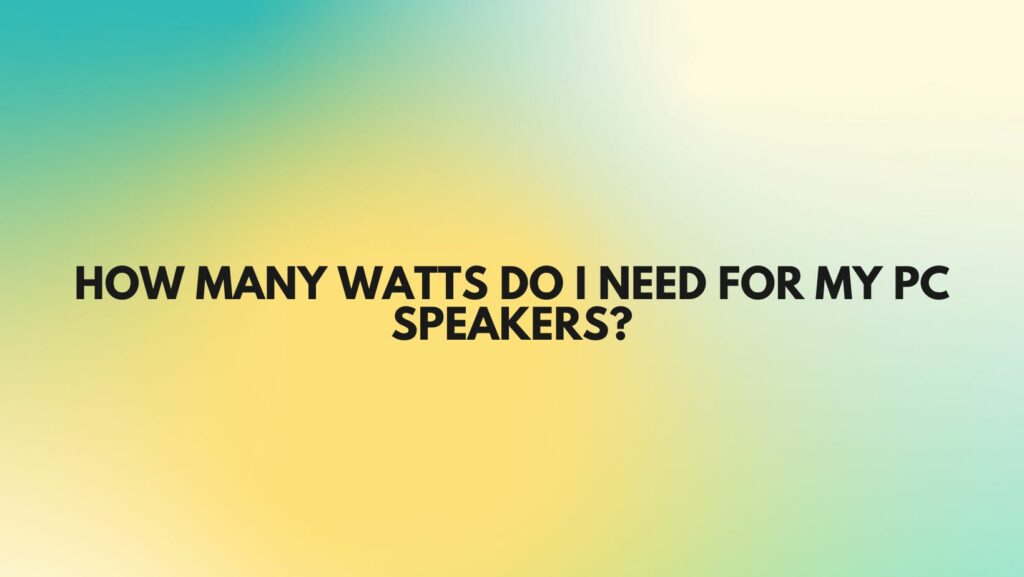Choosing the right speakers for your PC involves considering various factors, and one critical aspect is the power rating, often measured in watts. The question of how many watts you need for your PC speakers can be puzzling, as it depends on several factors, including the intended use, room size, and personal preferences. In this article, we’ll delve into the intricacies of speaker power, providing insights to help you make an informed decision and ensuring your PC audio setup meets your expectations.
- Understanding Watts: Decoding the Power Rating
Watts in the context of speakers represent the electrical power the speakers can handle or deliver. It’s essential to differentiate between RMS (Root Mean Square) power and peak power. RMS is a more accurate indicator of a speaker’s continuous power handling capability, while peak power represents the maximum power the speaker can handle in short bursts. When considering how many watts you need, focus on the RMS power rating for a more realistic assessment.
- Intended Use: Tailoring Power to Activities
The power requirements for your PC speakers depend significantly on how you intend to use them. For casual desktop use, lower wattage speakers may suffice, providing clear and balanced sound. However, if you’re a gamer or an audiophile seeking a more immersive experience, speakers with higher wattage and better performance characteristics may be more suitable.
- Room Size: Matching Power to Space
The size of the room or workspace where you use your PC is a crucial factor in determining the required wattage. Larger rooms demand speakers with more power to fill the space with sound effectively. Conversely, for smaller spaces, lower wattage speakers may deliver ample volume without overwhelming the environment.
- Speaker Sensitivity: Efficiency Matters
Sensitivity, measured in decibels (dB), indicates how efficiently a speaker converts electrical power into sound. Higher sensitivity speakers require less power to produce the same volume as lower sensitivity counterparts. When evaluating speakers, consider sensitivity alongside wattage to get a clearer picture of how efficiently the speakers will perform in your specific environment.
- Quality Over Quantity: Focusing on Sound Reproduction
While wattage is a crucial factor, it’s equally important to consider the overall sound quality. A set of high-quality, lower wattage speakers may outperform a higher wattage but lower-quality alternative. Look for speakers that offer a broad frequency response, low distortion, and clear, detailed sound reproduction within the specified wattage range.
- Amplification: Matching Speakers to Amplifier Power
If you’re using passive speakers that require an external amplifier, ensure that the amplifier’s power output matches the speaker’s power handling capabilities. Overpowering speakers can lead to distortion and potential damage, while underpowering them may result in lackluster performance.
- Consider Your Preferences: Finding the Sweet Spot
Ultimately, the ideal wattage for your PC speakers depends on your preferences. If you appreciate deep bass and enjoy cranking up the volume, you might opt for higher wattage speakers. On the other hand, if you prioritize clarity and detail at moderate volumes, lower wattage speakers may be more suitable.
Conclusion:
Determining how many watts you need for your PC speakers involves considering a blend of factors, including intended use, room size, speaker sensitivity, sound quality, and personal preferences. By understanding the intricacies of speaker power and evaluating these factors in the context of your specific requirements, you can make an informed decision that ensures your PC audio setup delivers the perfect balance of volume, clarity, and immersive sound.


